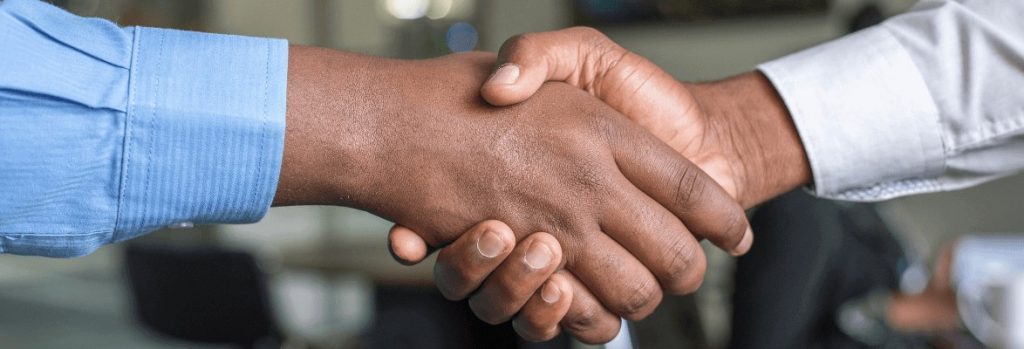Call Center Interview Questions Philippines | Jobs360

Recruiters conduct assessments to evaluate an applicant’s ability to perform well and to determine if the applicant is a good fit for the company. Applicants have to qualify for multiple levels of assessments before hired. This is the reason why it’s not easy to land a job and why the duration of the job interview processes can be lengthy.
The wait can last from days to weeks depending on the quality of applicants that are applying to fill the position. It can last long because there can be multiple parties involved in the job hiring process – the recruiter, manager, or employer. And many other reasons.
To help you understand further, learn the common job interview process recruiters follow here in the Philippines and note the key takeaways from the typical Filipino job interview.
A Job Interview Process
1. Resume Screening
The first thing recruiters assess is an applicant’s resume. A candidate must present a well-written resume.
Interviewers evaluate a candidate’s resume to check if they have met the qualifications of the job position.
For example, the hiring manager is looking to employ a graphic designer. The job role calls for a person with at least 3 years of experience using design and layout applications like Adobe Illustrator and Adobe Photoshop. The recruiter will then review several applicant resumes and look for candidates that meet the hiring manager’s requirement.
The first ticket in impressing a recruiter, a hiring manager, or an employer is a resume. Applicants should clean up their resume and include as much related professional experience as they can. When we screen resumes, we want to read about the applicant’s achievements and accomplishments. We want to see the key tasks and responsibilities they’ve handled and managed. We want to read about the skills they have acquired from their previous experiences.
– Joan, Account Manager
2. Phone Interview
Recruiters conduct phone interviews to further assess candidates. This is a way for recruiters to narrow down the pool of applicants to only the best and most qualified candidates for an in-person interview.
“When we assess applicants during a phone interview, there is already a high chance of us inviting them for an in-person interview. So we advise applicants to take the phone interview as professional as possible. We encourage applicants to ask questions that can help them prepare for the in-person interview with us or the clients.”
– Roma, Recruiter
3. First Interview
Recruiters work side by side with hiring managers and employers. However, interviewers will likely ask applicants regarding their skills and previous work experiences. This is to check if they qualify and have met standard requirements and qualifications for the job.
For example, if the hiring manager is looking to hire a CAD Drafting Engineer, the recruiter will interview the candidate and focus on the qualifications of the applicant and achievements the applicant accomplished in his previous companies.
4. Examination
Some companies require applicants to take examinations to further test their skills. It usually takes place within the company and lasts for 1 to 2 hours.
For example, if an employer is looking to hire a content writer, he can request applicants to take a content writing assessment. This method can help him further evaluate the writing style of the applicants and see which style suits his company best.
The recruiters can conduct the assessment and forward the document to the employer, along with the applicant’s resume and portfolio (if provided).
Testing and examinations become a part of the recruiting process when clients require it. We advise applicants to take this opportunity to showcase their professional capabilities to the clients and prove that they have the skills and experiences that our clients look for.
– Roma, Recruiter
5. Final Interview
The final interview of the applicant will be with the hiring manager or the employer. This is the last step of the interview process where applicants can present themselves as the best candidate for the job position.
In this process, hiring managers and employers evaluate candidates on their characteristics and personality. Though it’s important for employers to hire a candidate with the skills and experience, it’s as important for them to hire a candidate with the right mindset and attitude that will fit their team.
For example, a sole entrepreneur of an eCommerce business is looking to hire a virtual assistant. He will evaluate each candidate based on skills and personality. This is to determine the capability of the applicant to perform administrative tasks. And to determine if the applicant’s personality match with his and if they can work well together.
Character matters. It’s as important for our clients to find the right candidate to match their personality or their team’s personalities. When our clients outsource, they’re looking for an addition to their team. So it’s as important for the clients to find a candidate that have the skills, the experience, and the character that match theirs.
– Chiqui, Head of Recruitment Team
6. Background Check
Recruiters run a reference check on all shortlisted applicants. This is to determine their work ethics from the previous companies.
For example, banking companies review an applicant’s employment records, criminal records, and financial records due to the nature of their business. Applicants with histories of theft will less likely get the job offer.
7. Job Offer
The final step of the job interview process is the job offer. Recruiters call applicants to come in the office and discuss the employment offer.
Recruiters walk each applicant through the company policies, compensation packages, and benefits before signing of the contract. This is the best time to discuss any concerns regarding what’s discussed before the contract signing.
When all goes well, it’s the time candidates sign the contract and follow through the next steps of the employment process.
Takeaways from the Job Interview Process
- For fresh graduates, include as much professional experience you can. Include part-time work experiences, on-job training, and summer jobs.
- For professionals, customize your resume to fit the job position you’re applying for.
- Prepare a portfolio of your work. For fresh graduates, take time to learn new skills or to master the basic skills you’ve learned in the university.
- Expect recruitment calls during the day. Some recruiters will give a heads-up via text before they call while other recruiters will just give you a call. If the recruiter had advised beforehand, expect them to ring you on time. Take the call in a quiet place with good reception.
- Prepare before going for an interview.
- Rehearse your introduction.
- Research about the company and note the details of the job vacancy.
- Prepare questions for the interviewer.
- Print copies of resumes and references in advance.
- Bring a pen.
- An impression is also important during the first interview. Dress professionally.
- study, review, and practice for the exam. Clients will likely test you for the skills you already have and evaluate the exam based on the quality of your work.
- Be honest and truthful during the job interviews. But stay professional and veer from sharing personal stories and experiences.
- Share stories of achievements and accomplishment from your previous work experiences.
I’m sure you have a few takeaways from your job interview experiences. Can you share them with us? Leave it in the comments section below. We’d love to hear and learn from it!



